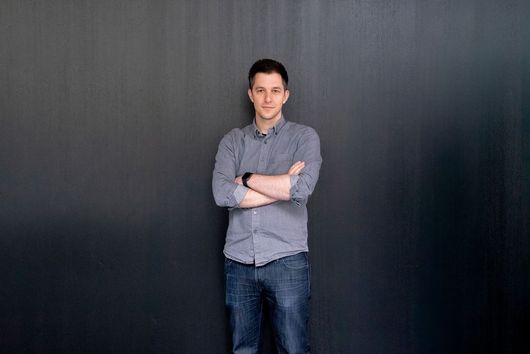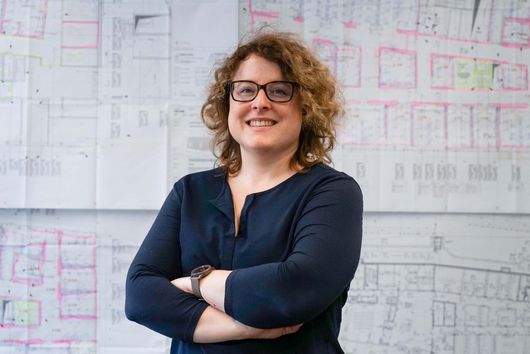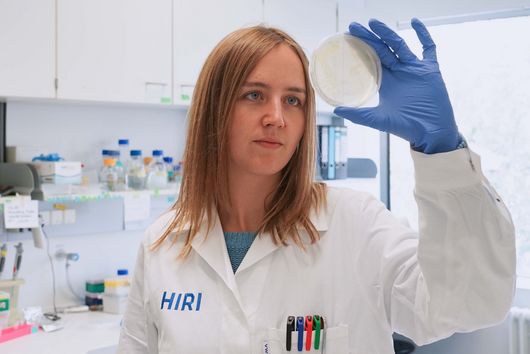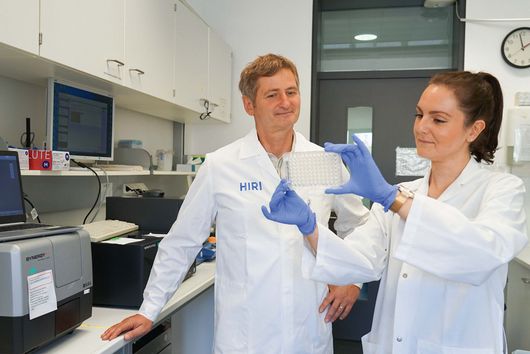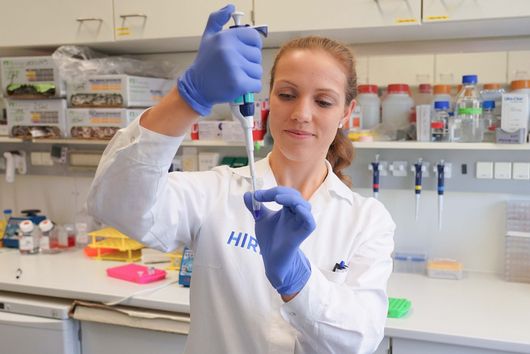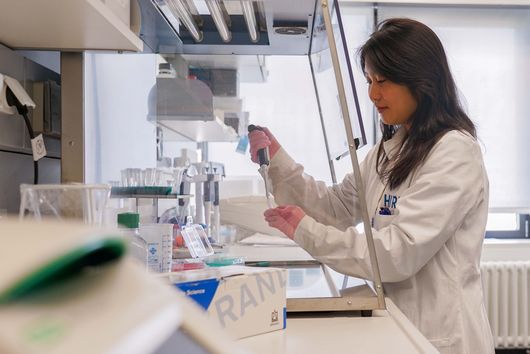
A great interest in small things
Mexico-born Marco Antonio Olguín Nava joined HIRI in June 2020. As a participant of the graduate program “RNA & Infection”, he is researching viruses. Even in his spare time, Marco is often focused on details.
“I first came into contact with viruses during my BSc. And I fell in love with them straight away,” HIRI PhD student Marco Antonio Olguín Nava recalls. He is now studying these pathogens in Würzburg. However, Marco's path towards infection research proves that a BSc does not have to be immediately followed by an MSc.
Taking detours to reach your goal
After obtaining his first academic degree, Marco was eager to gain experience outside of the world of academia. At a pharmaceutical company, he worked in quality control, where he investigated the stability of drugs at different temperatures and humidity levels. According to Marco, industrial research is different from its academic counterpart: “It was interesting to see how research is done in industry. Industrial research is more focused on the final product. The environment is more controlled, the regulations are stricter.”
After five years, Marco was drawn back to university: “I felt like I was treading water. I wanted to do more challenging work.” He applied for an MSc in biochemistry at the National Autonomous University of Mexico. For him, it was not an easy decision: “I was settled, had a job, paid my bills – and suddenly I was a student again. But I did the right thing.“
As part of his master's project, he investigated the interactions between rotaviruses and the human immune system in the lab of Susana López. However, this project was discontinued after one year. Marco had to reorient himself. His new research topic: alternative mechanisms in translation, the process of creating proteins from a messenger ribonucleic acid (RNA) template, in viral infections. “When I had to change my project after one year, it was difficult. Half of my MSc was over and suddenly I had to start all over again,” Marco remembers. “But looking back, it was good, because that's how I got to do a research internship in Heidelberg.”
Research in Germany
In the lab of Heidelberg scientist Alessia Ruggieri, Marco came to know, and love, the German approach to doing research: “It was different: faster, more efficient. I was able to use technologies we don't have in Mexico.” Marco was certain: he wanted to do his PhD in Germany. While looking for groups doing research on viruses, he came across the HIRI research groups of Redmond Smyth and Mathias Munschauer – and across the graduate program ”RNA & Infection.” “The application deadline was in just a week and a half. I had to work very hard to submit all the documents on time,” he recalls. For Marco, the rotation was one of the program's major benefits. Prospective students do not apply for a specific lab. Instead, successful applicants are first exposed to three different laboratories at HIRI. “It's really nice to see how the labs work: What's the organization like? How is the atmosphere? What's the supervision like?” Marco says.
In the end, he opted for Redmond Smyth's lab: “His lab was the best choice for me.” Marco is currently working on the SARS-CoV-2 coronavirus. “We are building our own coronaviruses, so to speak. This helps us to study them better. We can create mutant viruses to examine how they behave. That way, we can predict how they will evolve and also test drugs for example,” he explains.
Marco not only focuses on details in his research, but also in his private life: “I've always liked studying and working with small things.” In his spare time, Marco likes to take macro photos. He particularly enjoys pursuing this hobby in the vineyards high above Würzburg. “Of course, landscapes with mountains, lakes or the sea are impressive. But you can also find beauty in a coin on the street, in the wrinkles of a hand or in a small flower.”







